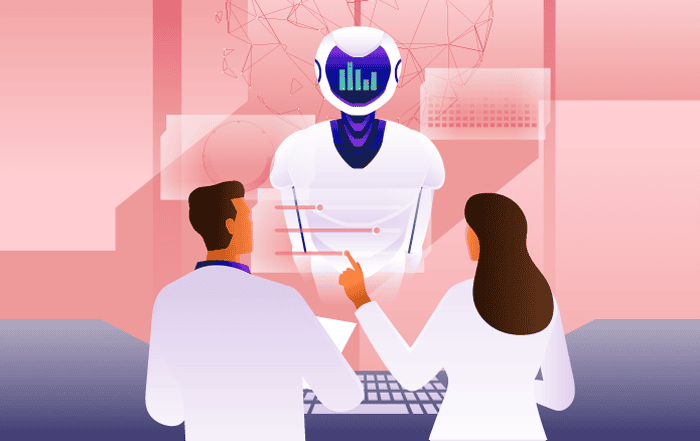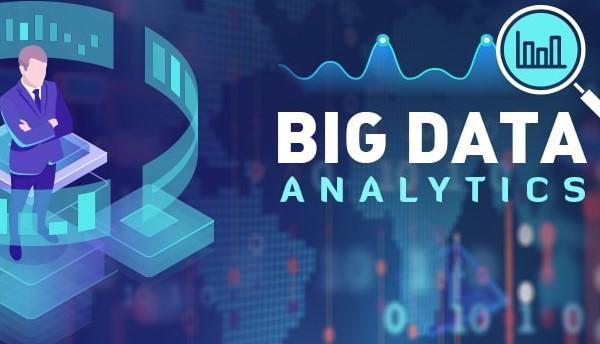
Introduction to AI Testers
AI testers evaluate and confirm AI systems’ performance, correctness, and dependability. For example, they might analyse a prediction machine learning model for a telecommunications company, a language processing application for a global news agency, or a healthcare provider’s medical image-anomaly recognition computer vision algorithm. AI testers work closely with data scientists, software engineers, and other stakeholders to ensure that AI systems meet the desired specifications and requirements.
Essential Skills for AI Testers
As an AI tester, you need a solid analytical mindset to evaluate AI systems’ performance, edge cases, and potential biases rigorously. Understanding how AI models work requires that individuals have strong skills in data analytics as well as machine learning principles.
Identifying problems requires great problem-solving skills, while troubleshooting also demands excellent problem-solving abilities. Therefore, paying particular attention to detail would enable one to capture even the most elusive mistakes made during a project. Periodically documenting outcomes from experiments will help communicate findings through oral reports within groups of people from various disciplines, which consist of multiple departments in an organisation that need each other’s input.
One can use creative powers and think outside the box to find unusual test scenarios. With this in mind, having a mentality that involves continually seeking knowledge will enable you to be abreast of up-to-date artificial intelligence information, development stages, and methods for analysis within this dynamic industry.
Types of AI Tester Jobs
AI testing encompasses diverse roles and responsibilities, reflecting AI systems’ complexity and multifaceted nature. The demand for specialised AI testers is rising as AI permeates various industries. And here are some of the different types of roles or tasks that are done by AI testers :
AI Model Tester:
These testers assess how well AI models work, how correct they are, and whether they are trustworthy. They develop test cases that prove the model’s output is accurate and whether it can generalise or have any prejudices. To do this job effectively, one must have a profound understanding of machine learning algorithms and data processing before running analysis and evaluation parameters for models.
AI System Tester:
AI model testers focus on the main AI algorithms, while AI system testers adopt a far-reaching approach –testing the whole AI-powered system or application. It aims to affirm that the AI component harmonises with other software components, user interfaces, and external data sources. They must possess strong software testing skills, comprehend system architecture, and understand AI workflows.
AI Fairness and Bias Tester:
Since AI systems are used in areas which need a lot of care, it is essential to make sure that they are fair and do not have any unfair intentions. To help solve problems related to unfairness and prejudice in Artificial Intelligence models or systems, AI fairness and bias testers focus on identifying such issues. They also establish methods of ensuring fairness is assessed among all races or cultures by developing testing methods and suggesting different ways to minimise the effects of discrimination due to information collected wrongly.
AI Safety and Robustness Tester:
These testers aim to evaluate artificial intelligence’s safe functioning and reliability, specifically in extreme circumstances like driving cars without drivers or medical scenarios. They create different tests to check systems behaviour defined at the limits of possibility, under conditions of uncertainty and various kinds of hostile acts resulting in a breach. Therefore, a profound understanding of cybersecurity must be combined with risk analysis and industrial safety principles at their disposal.
AI Explainability and Transparency Tester:
Trust can be built with responsible AI adoption, depending upon how comprehensible the AI is. Testers develop methods that evaluate interpretability and transparency in models, assess whether explanations are good enough, and meet legislated minimums.
AI Domain-Specific Tester:
For example, in healthcare, AI testers require a strong understanding of the intricate concepts, policies and procedures that make up the medical field to evaluate AI-based diagnostic or treatment solutions effectively.
These are just a few examples of the diverse AI tester roles emerging in response to the increasing adoption of AI across various sectors. The demand for specialised AI testing skills and expertise will only grow as AI technologies mature.
Getting Started as an AI Tester
Embarking on a career as an AI tester is not just a job; it’s a journey of continuous learning and growth. It offers an exciting and rewarding path for individuals passionate about technology and quality assurance. Here are some steps to consider when starting this journey, each step opening up new horizons of knowledge and experience:
Interested candidates should develop a foundation in AI concepts and techniques, such as deep learning, natural language processing, and computer vision. Pursuing relevant coursework, certifications, or online learning resources can help build this knowledge base.
Learn programming in languages commonly used in AI development, such as Python, R, Java, or C++. These skills will be essential for writing test scripts, automating tests, interacting with AI frameworks and libraries and measuring metrics. Additionally, Participating in AI testing projects, internships, or open-source contributions will give you hands-on experience. You can also get certified as an AI tester by leading certification-providing organisations such as ISTQB. This experience will enhance your skills and demonstrate your expertise to potential employers.
Create a compilation depicting your AI testing projects, methodologies, achievements, and reporting skills. This is important to present during your job interview so that employers learn more about you. As a job seeker interested in AI tester jobs, networking with experts from AI and testing communities, attending industry events, and using job search platforms could work for you.
Challenges in AI Testing
There exists some complexity and opaqueness, as well as several challenges, associated with testing artificial intelligence (AI) in comparison with testing software in a traditional manner; one of its key challenges is the black box nature of AI systems’ complexity, whose inner workings and decision-making processes are hardly understandable hence making it difficult to understand them. There is no clear way of identifying why certain things go wrong or where the unexpected behaviours come from due to underestimation of errors’ root causes when bugs are discovered, further complicating the developers’ testing process and debugging.
Another significant challenge lies in established AI testing methodologies and standards. More direct applications of conventional software techniques might be needed to understand the nuances of AI algorithms, like managing edge cases, verifying fairness and bias, and ensuring resistance to adversarial attacks.
The dynamic and constantly evolving nature of AI models poses another hurdle. As AI systems are continuously updated and retrained on new data, ensuring consistent performance and catching regressions becomes daunting. Testers must develop strategies to efficiently validate the model’s behaviour across various iterations and data distributions.
AI systems can function in challenging environments and circumstances, making anticipating or simulating every possible real-world condition complex during testing. Testers must be creative in developing real-life-like tests to evaluate the AI system’s performance and generalisation ability. Ensuring the responsible development of AI systems is another critical challenge. Testers must identify and mitigate potential biases, privacy concerns, and unintended consequences that AI systems may exhibit, particularly in high-risk domains like healthcare, finance, and criminal justice.
Moreover, additional problems come from skilled testers and unceasing upskilling and learning. This means that testers should continuously be updated in this fast-growing area. With increasing complexity, testers must know the latest AI test techniques, tools and best practices. Ultimately, responding to these challenges in AI testing calls for creating solid and specialised test frames promoting interdisciplinary communication and nurturing a highly skilled workforce to ensure the safe and reliable deployment of AI systems.
The Future of AI Tester Jobs
The future of AI testing is poised to be an exciting and rapidly evolving landscape, driven by the continuous advancements in artificial intelligence and the increasing adoption of AI systems across various industries. As AI becomes more pervasive, rigorous and comprehensive testing methodologies will become paramount to ensure these systems’ safety, reliability, and trustworthiness.
A major driving force for the future of AI testing will be the rise of custom tools and frameworks designed only for use with AI programs. The peculiar capabilities of AI algorithms – for example, managing intricate data structures, checking equality, validity and consistency correlations, or protecting against adversarial attacks – can hardly be handled by traditional software testing instruments. Consequently, various AI testing tools will be introduced, containing unconventional methods like metamorphic testing, simulation-based testing, and AI-driven test case generation.
Even more, prospects exist as far as including AI tools in the testing process is concerned. The generation of test cases can be automated using machine learning algorithms, so developers no longer have to prioritise their testing efforts; they can also help analyse bugs to the root cause and debug them. Speeding up AI testing will become much easier if developers integrate it into their work processes because they will have faster ways to iterate over their projects and cover them more extensively. The need for continuous testing and monitoring will increase as AI systems become more complex and ubiquitous. Real-time testing and monitoring frameworks will ensure AI models’ consistent performance and reliability as they operate in dynamic environments and encounter new data distributions.
The ethical and responsible development of AI will still be necessary in the future of testing AI. This is especially true in healthcare, finance, and criminal justice, where a lot is at stake; hence, techniques for measuring fairness, reducing biases, and ensuring that AI decisions can be understood and open will become more critical.
Creating robust and widely accepted AI testing standards and best practices will require the involvement of different stakeholders, including AI researchers, domain experts, ethicists and regulatory bodies. Adopting this interdisciplinary strategy will guarantee that AI systems are deployed securely and responsibly.
Overall, the future of AI testing promises to be an exciting and challenging frontier, driven by technological advancements, ethical considerations, and the growing demand for trustworthy and reliable AI systems across various sectors.
Conclusion
AI tester jobs promise security and advancement across exciting and challenging career paths and serve as an opportunity for enthusiastic individuals about technology, problem-solving, and guaranteeing the reliability and safety of AI systems. This will ensure demand for people in this occupation because AI is continually becoming more common; hence, skilled AI testers shall not be in short supply in this particular branch of the economy- stable with prospects as well. There will always be job opportunities in the technology sector or any other industry, such as health care finance, that are well acquainted with its working principles or even some industries. AI testers play a vital role in shaping the future of AI and ensuring its responsible and ethical development.








